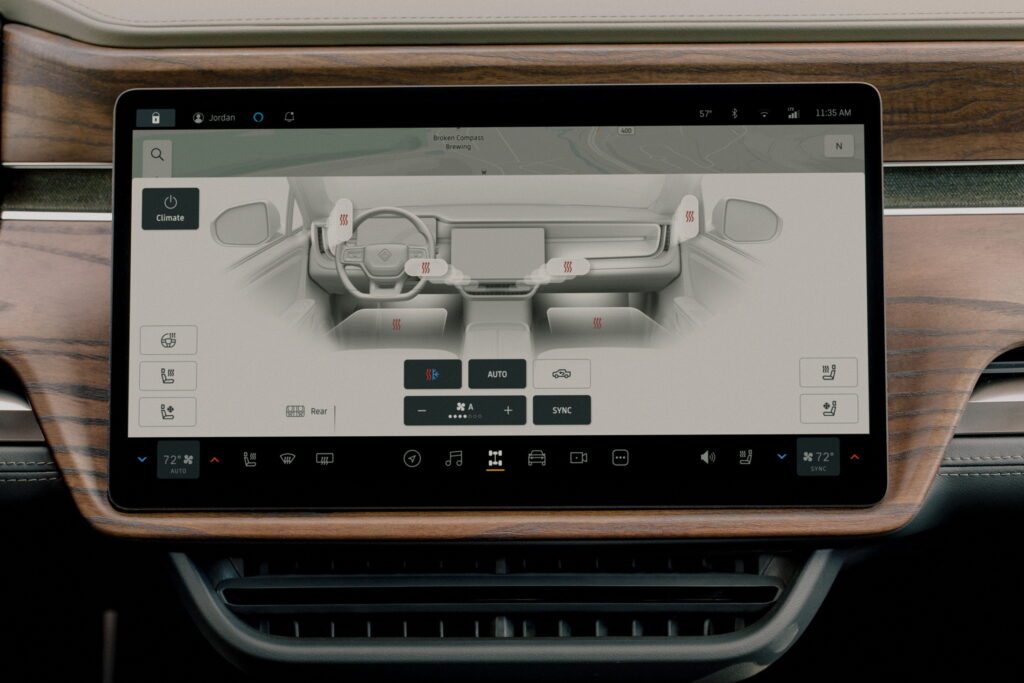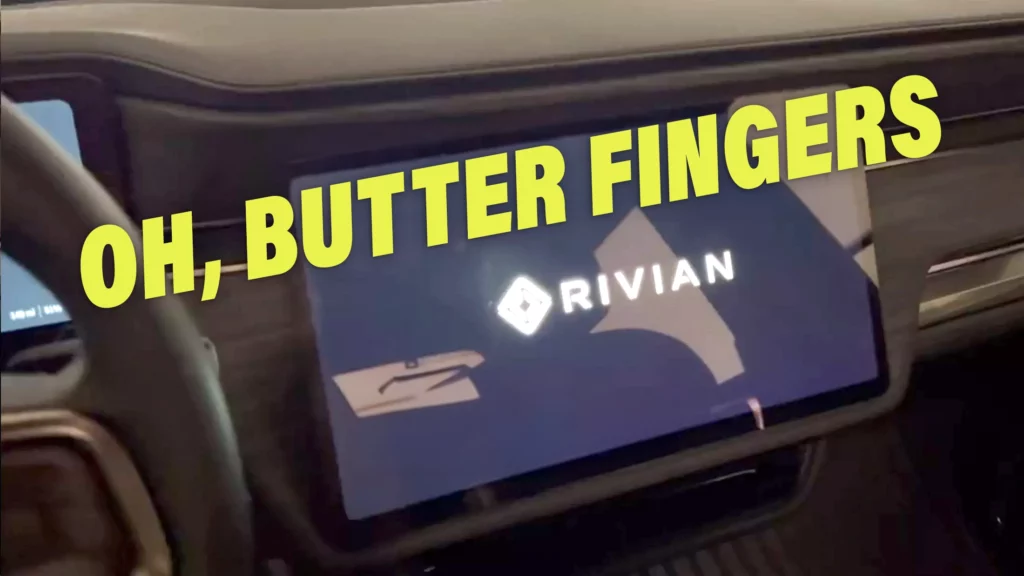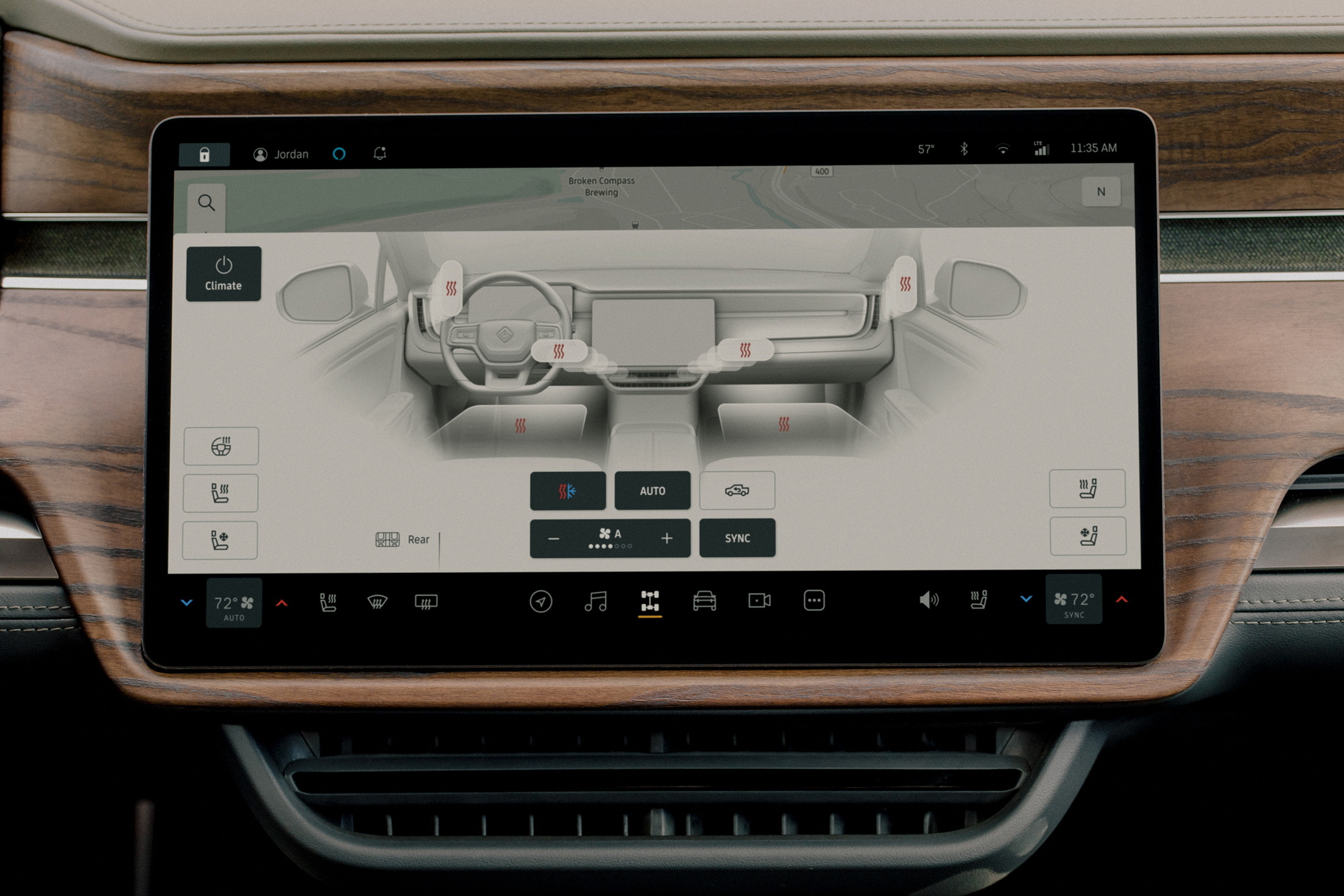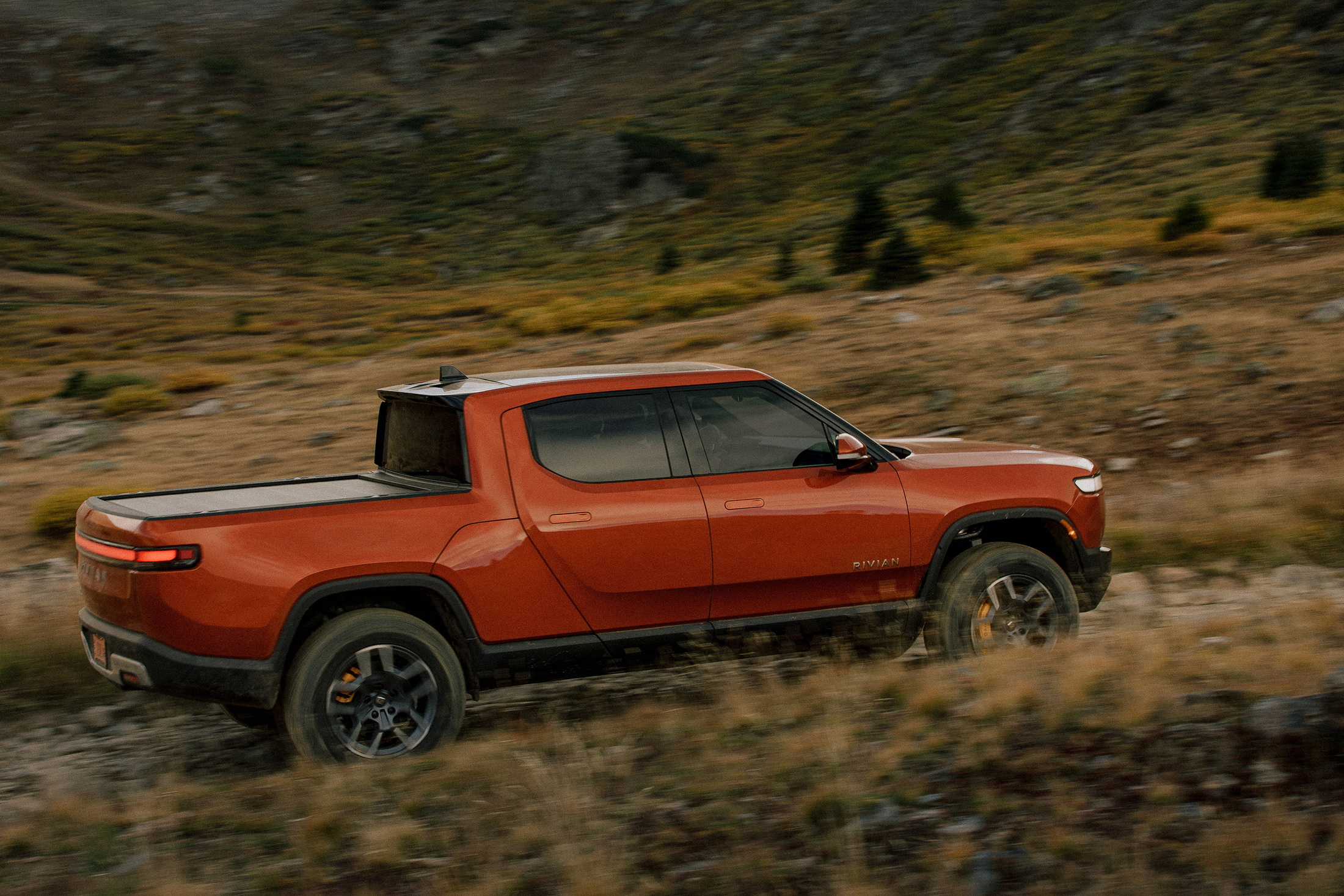Earlier this month, we reported that a software error in an over-the-air update had led to certain Rivian R1S and R1Ts losing their infotainment screens. Now, the automaker has released an official recall notification, but that’s somewhat academic because the problem has already been fixed.
In documents filed with the National Highway Traffic Safety Administration (NHTSA), Rivian reports that 1,463 vehicles were affected by the issues. These are exclusively the ones that downloaded software update 2023.42 on November 13.
The automaker was able to check update completion data to determine the number of R1Ts and R1Ss that received the bad software in the two hours between it being released and Rivian slamming the brakes on the update’s proliferation.
More: Rivian Blames “Fat Finger” On OTA Software Update That Could Disable Infotainment Screen

Officially, the recall was necessary because the update caused issues with the infotainment system that could prevent drivers from accessing the heater controls and, crucially, could have made it impossible for them to use their defroster.
However, earlier reports indicate that the bad software update prevented owners from using much more than that. It caused the infotainment screen to go black, closing off access to media and other comfort settings. However, the rearview camera continued to work, as mandated by government regulations.
A Reddit post by Rivian’s vice president of software development, Wassym Bensaid, attributed the problem to a simple mistake, which he described as a “fat finger” error. That caused it to send out “the wrong build with the wrong security certificates,” which led to the infotainment issues.
Fortunately, that post was made the day that the software update was sent out, and the automaker was able to release a new software update, 2023.42.02, just two days later. It corrected the issue, and Rivian is not aware of any injuries or incidents that resulted from this error. As of November 19, all 1,463 customer vehicles had installed the update, and their EVs were fully functional again, which means that customers don’t need to worry about this recall.







